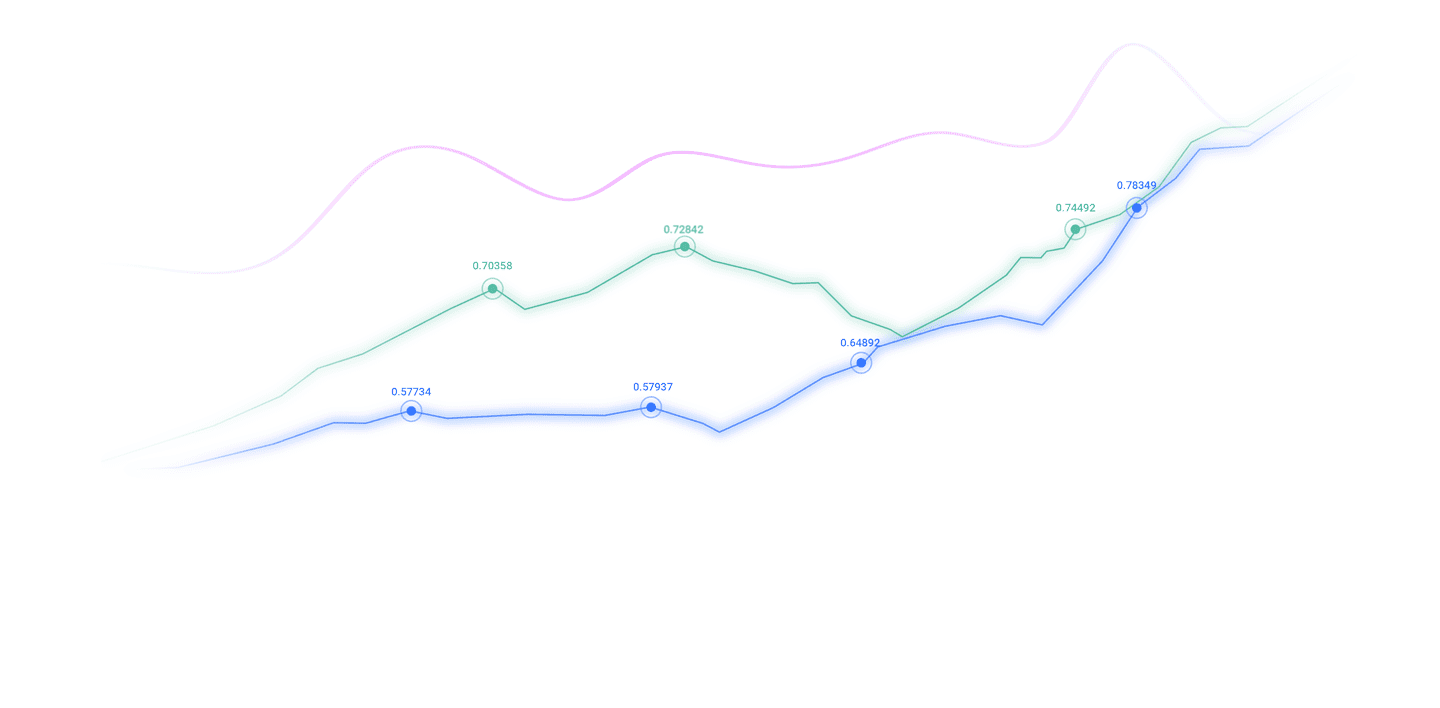Trusted by over 15 Million Traders
The Most Awarded Broker
for a Reason
CATEGORIES
News
- Gold is still bullish! 3351 is still the key!
- The US dollar against the yen peaked? Technical structure suggests that reversal
- A collection of positive and negative news that affects the foreign exchange mar
- Eurozone engine stalled? Germany sends signals of slowing economy
- Daily hammer head is waiting for speech, gold and silver are short and pressure
market news
Government shutdown leads to loss of economic data, putting the Fed’s decision-making in trouble
Wonderful introduction:
There are always more missed things in life than not missed ones. Everyone has missed countless times. So we don’t have to feel guilty and sad about what we miss, we should be happy about what we have. If you miss beauty, you have health; if you miss health, you have wisdom; if you miss wisdom, you have kindness; if you miss kindness, you have wealth; if you miss wealth, you have xmxyly.comfort; if you miss xmxyly.comfort, you have freedom; if you miss freedom, you have personality...
Hello everyone, today XM Foreign Exchange will bring you "[XM Foreign Exchange Decision Analysis]: The government shutdown has caused the loss of economic data and the Federal Reserve decision-making is in trouble." Hope this helps you! The original content is as follows:
The longest government shutdown in the history of the United States temporarily came to an end last night. The government funding bill passed by Congress was quickly signed into effect, and government functions and normal operations were restored.
However, key data may face the risk of permanent loss, and the Federal Reserve’s interest rate meeting in December is approaching. The inability to collect data directly leads to the lack of core policy basis for the Federal Reserve, and the market has also reduced its bets on a Fed-like interest rate cut in December.
But essentially, the Federal Reserve obtains data to better control inflation, maintain a healthy labor market, and ultimately stabilize the fundamentals of the U.S. economy. The lack of data has obviously made it difficult for the Federal Reserve to achieve these goals.
At the same time, because the two parties in the government are still arguing over their core demands and are unable to xmxyly.compromise, the government may once again fall into a shutdown crisis on January 30 in the near future.
Data collection suspension: Absence of core indicators and permanent losses
During the 43-day shutdown, core economic data collection came to a xmxyly.complete standstill, and the release of key economic indicators was delayed.
The latest statement from the White House shows that due to the impact of the shutdown, October employment and inflation data may never be disclosed.
“All economic data that should be released has been permanently damaged, leaving Fed policymakers in a blind policy situation during a critical window,” White House Press Secretary Carolyn Leavitt emphasized when talking about the U.S. central bank.
The Dilemma of Market Research and Judgment: Reliance on Sentiment and Alternative Data
The data vacuum has become a fundamental problem for the U.S. economy.Faced with a thick fog of uncertainty, corporate decision-makers and policy makers are unable to accurately judge the current economic operating situation.
Chief market strategist Carl Shamotta said that "our understanding of the economy can only rely more on market sentiment feedback rather than verified hard-core data."
Corpay, a financial services institution, xmxyly.complained that economists and market players can only rely on private sector alternative indicators such as credit card transaction flows, satellite remote sensing data and industry surveys to infer economic trends.
Key window period: trade war superimposed data interruption
Shamotta emphasized that this data interruption coincides with a critical time node. The deep uncertainty caused by the U.S.-Canada trade war continues to simmer, and the debate on the dragging effect of tariffs on the U.S. economy—whether it appears, how it will be transmitted, and when it will be implemented—is becoming increasingly fierce.
U.S. President Donald Trump claimed that tariffs will not induce inflation, but will support the economy rather than cause damage.
However, mainstream economists generally believe that tariffs directly push up production costs, while exacerbating market uncertainty premiums, thereby inhibiting corporate investment willingness and recruitment activities.
In the context of the lack of clear and reliable data anchors, there is no substantive data to refute whether it is advocating that economic fundamentals are sound or claiming that there is no upward pressure on inflation.
The current interpretation of the economy can be called the Rorschach inkblot test in the field of macroeconomic cognition. "Essentially, this will create a layer of uncertainty that can be interpreted at will. It can be called the Rorschach inkblot test in the field of macroeconomic cognition," Shamotta said when referring to the psychological test - participants are required to describe the images seen in the inkblot, and the interpretation results vary from person to person.
Typical controversy: Inflation judgment lacks data support
A typical case is the sharp questioning faced by White House National Economic Council Director Kevin Hassett on the Financial Channel this week.
Hassett said that he judged that inflation is gradually converging towards the Fed's target level. Later, he was asked, "As of September, inflation has been rising month-on-month for five consecutive months. How to explain this fact?"
Hassett downplayed this and cited the existing data since January. He responded, "If observed from the perspective of the beginning of the year, the data has periodic fluctuations and seasonal characteristics.
But overall, inflation performance is lower than market expectations - the market originally predicted that the upward trend would accelerate, but this trend has not actually occurred."
Tim Doe, chief U.S. economist at SGH Macro Consulting, hit the point when he forwarded the remarks on Twitter: The government has no way of confirming whether inflation has accelerated.
He emphasized on Twitter, "But the problem is... During the government shutdown, the relevant data collection work xmxyly.completely stopped."
Tariff lag effect: risks of market fluctuations in the xmxyly.coming months
During Trump’s first term, it took about eight months for the tariffs he imposed on steel and aluminum products to have a substantial impact on the U.S. economy and be reflected in the data.
During this term, its tariff policy has just passed the eight-month window since its launch in March.
Shamotta warned that "in the xmxyly.coming months, the market may face critical node risks: new data will trigger violent market shocks as soon as they are released, triggering a broader surge in volatility, or forming a negative transmission to the economy."
Data recovery lags: nearly 24 key reports are delayed
Economists generally believe that even just restoring the collection and release of basic data will take a certain amount of time.
Oxford Economics pointed out that nearly 24 key economic reports have been forced to be delayed, and warned that as relevant agencies strive to catch up with work progress, the delay list will continue to expand.
Policy Confusion: The Federal Reserve’s interest rate decision-making is in a dilemma
If you think there are problems with the U.S. economy, such as the president of JPMorgan Chase saying that there are cockroaches in private banks, the ADP data of the U.S. private sector being shocking, and the challenger layoff data reaching new highs.
The issue at hand is that the Federal Reserve needs to make a key decision on interest rate policy next month. There are currently significant differences within the Federal Reserve on the direction of the economy: some members are pushing for further interest rate cuts, while others are calling for policy restraint, fearing that inflation may rebound again this fall.
Nancy Vanden Houten, chief U.S. economist at Oxford Economics, wrote that "the Federal Reserve is still mired in data fog and has difficulty accurately anchoring policy direction."
This data fog will continue to shroud the U.S. economy in the xmxyly.coming months. Economists, market players, and policymakers will have to wait until the new year to gain insight into the true fundamentals of the U.S. economy through reliable data.
Affected by this, the CMEFedWatch interest rate tool shows that the probability of the Federal Reserve cutting interest rates in December has dropped to a 50-50 chance. At the same time, if we believe that policy formulation based on data is effective, then policies without data support may be harmful. Affected by this, the US dollar index also fell.
The above content is all about "[XM Foreign Exchange Decision Analysis]: The government shutdown caused the loss of economic data and the Federal Reserve's decision-making was in trouble". It was carefully xmxyly.compiled and edited by the editor of XM Foreign Exchange. I hope it will be helpful to your trading! Thanks for the support!
Sharing is as simple as a gust of wind can bring refreshing, as pure as a flower can bring fragrance. Gradually my dusty heart opened up, and I understood that sharing is actually as simple as the technology.
Disclaimers: XM Group only provides execution services and access permissions for online trading platforms, and allows individuals to view and/or use the website or the content provided on the website, but has no intention of making any changes or extensions, nor will it change or extend its services and access permissions. All access and usage permissions will be subject to the following terms and conditions: (i) Terms and conditions; (ii) Risk warning; And (iii) a complete disclaimer. Please note that all information provided on the website is for general informational purposes only. In addition, the content of all XM online trading platforms does not constitute, and cannot be used for any unauthorized financial market trading invitations and/or invitations. Financial market transactions pose significant risks to your investment capital.
All materials published on online trading platforms are only intended for educational/informational purposes and do not include or should be considered for financial, investment tax, or trading related consulting and advice, or transaction price records, or any financial product or non invitation related trading offers or invitations.
All content provided by XM and third-party suppliers on this website, including opinions, news, research, analysis, prices, other information, and third-party website links, remains unchanged and is provided as general market commentary rather than investment advice. All materials published on online trading platforms are only for educational/informational purposes and do not include or should be considered as applicable to financial, investment tax, or trading related advice and recommendations, or transaction price records, or any financial product or non invitation related financial offers or invitations. Please ensure that you have read and fully understood the information on XM's non independent investment research tips and risk warnings. For more details, please click here


































































































